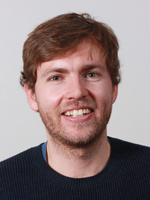Teaching Experiences
Planetary Physics and Global Tectonics course (GEO-DEEP9100, UiO), ~ 2 days of teaching, 1 week of preparation (2020).
From small bodies to impact craters (GEO9504, UiO), ~ 2 days of teaching, 1 week of preparation (2020).
As part of those two courses (note that I used the same syllabus for both classes), I was responsible for teaching an “Introduction to planetary surface processes with a focus on impact crater geology and modeling.” I summarized below the outline of the subjects covered during those two days.
Beginners and Advanced class in Python: “Python for Dynamics and Evolution of Earth and Planets”, ~ 1 week of teaching, 1 week of preparation (2019).
I taught (with Anne Fouilloux) a one-week Python Beginners and Advanced class at the DEEP school (Norwegian Research School for Dynamics and Evolution of Earth and Planets). Most of the resources were compiled into a website with the help of markdown files. The tutorial was taught with the help of the Python package manager Conda and Jupyter Notebooks. The two last days were reserved for participants to work on data related to their own projects, apply the newly learned skills, and have the possibility to ask us for help. Link to course.
Teaching Philosophy
I have taught classes and tutorials at different levels (undergraduate and graduate levels) and to diverse groups of students (from different areas of the world and with varied educational backgrounds). First of all, this has taught me that we all learn in very different ways, and that how much we learn is dependent on what we know from before. I think one of the most important factors for learning is a good teaching environment where students feel safe and seen. Then, variation in teaching practice is important because 1) we are more likely to accommodate how each student best access new material, and 2) it will give students many different experiences within the same subject, which facilitates learning. In this context, I think Earth science education has the advantage of many different arenas (field, lab, programming etc.) and activities (field work, practical work, research-based learning etc.). I also think that stimulating each student’s motivation, as well as reflection on their own learning will often lead to deeper learning.
Mentoring philosophy/role of a mentor
Undertaking the role of a mentor is an enriching endeavor that holds significant value for both the mentor and the mentee. As a mentor, one assumes the responsibility of not only sharing expertise and knowledge but also fostering personal and professional growth in the mentee. Through guidance, support, and constructive feedback, mentors provide invaluable insights that enable mentees to navigate challenges, make informed decisions, and chart their paths toward success. From my own experience during my PhD and the mentoring of six students over the last few years, I understand better the steps required for a student to bring a project to successful completion. Amongst others, the project’s onboarding part is crucial. Particularly, having a clear and detailed overview of the project description (including a detailed literature study) and the goal of the study, early introductory tutorials, and continuous follow-up and progress monitoring during weekly one-on-one meetings are my top three priorities for the conduction of a successful project.
Mentoring
I have had more than 200 hours in mentoring activities (e.g, project onboarding, introductory tutorials, one-on-one weekly meetings) through the supervision of five graduate students and one undergrad student.
List of students (name, year, status, University, project title, role):
- Colten Rodriguez, 2023–today, Undergrad student at Princeton University (USA, CA), “Cut and Paste augmentation for instance segmentation – Generation of planetary images with “fake” boulders”, Main supervisor.
- Brian Amaro, 2022–today, Graduate student at Stanford University (USA, CA), “Machine Learning-Driven Detection of Boulders on the Martian Surface”, Main supervisor.
- Emiliano Gonzalez, 2022–2023, Graduate student at Ponoma University (USA, CA), “Quantifying the Radial Distribution of Meter-Sized Boulders Around Lunar Impact Craters of Variable Degradation State and Target Properties”, Main supervisor.
- Francisco Cantheira, 2020–2021, Master student at TU Delft University (Netherlands), “Automatic detection of land cover changes in Norway and Netherlands”, Main supervisor. Project in collaboration between Science and Technology Norway AS and Netherlands AS.
- Trine Uthus, 2020, Master student, University of Oslo, “Crater statistics and Geological history of Jezero crater and Oxia Planum regions”, Co-supervisor.
- Kristina Gilje, 2019, Master student, University of Oslo, “Small impact craters on Mars studied by numerical models and observations at the NASA InSight landing site”, Main supervisor.
Outreach Activities
I believe participating in outreach activities is highly important, as it acts as a bridge between our academic work and the broader public. By sharing discoveries, expertise, and enthusiasm for the field, we can extend the impact beyond only publishing academic papers. Outreach efforts enable us to simplify intricate scientific ideas, making them understandable to a wider audience and promoting better public comprehension of science. These interactions not only demystify research but also inspire potential future scientists, sparking curiosity and fostering an interest in scientific exploration.
